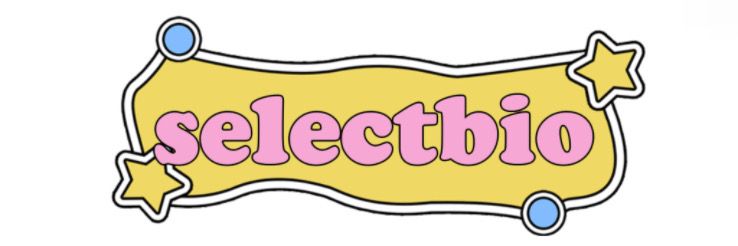Are Sustainable Practices Key for Future OEM Success?
As industries face mounting pressure to adopt sustainability, the questions surrounding the implications of these practices for Original Equipment Manufacturers (OEMs) have never been more critical. In a world rapidly transitioning toward renewable energy, OEMs must not only keep pace with technological advancements but also embrace a sustainable business model that resonates with environmentally conscious consumers and stakeholders alike.
For more Li-Ion Battery/Cell Distributor OEMinformation, please contact us. We will provide professional answers.
Understanding the impact of sustainable practices on OEM success begins with recognizing the broader context. Climate change, resource depletion, and societal expectations are driving major shifts in how businesses operate. To stay relevant, OEMs must integrate sustainability deeply into their supply chains, product design, and corporate culture. Failure to adapt may put them at risk of obsolescence as customers increasingly favor companies that prioritize environmental considerations.
Take, for instance, the rise in demand for electric vehicles (EVs). Li-Ion Battery/Cell Distributor OEMs have a unique opportunity to lead the charge in this new era. Investing in sustainable battery production processes and leveraging eco-friendly materials can not only reduce carbon footprints but also enhance brand loyalty. As consumers become savvier about their purchasing choices, they are more likely to support brands that exhibit genuine commitment to sustainability. OEMs that embed these practices into their strategies can cultivate trust and loyalty, ultimately driving sales growth.
Moreover, sustainable practices extend beyond merely jumping on the green bandwagon; they can also lead to significant cost savings. From energy-efficient production methods to reducing waste through material recycling, implementing sustainable processes makes financial sense. For Li-Ion Battery/Cell Distributor OEMs, this could mean investing in innovative technologies that lower production costs while enhancing efficiency. Furthermore, as resource scarcity looms, those companies that have already optimized their operations for sustainability will be in a much stronger position to weather market volatility.
Another vital component of sustainability is the shift toward circular economy principles. OEMs that design their products with end-of-life considerations in mind can significantly reduce their environmental impact. For instance, creating modular battery systems allows for easier replacement and recycling, rather than total disposal. Li-Ion Battery/Cell Distributor OEMs can play a critical role in this transition, contributing solutions that address the lifecycle of their products. Consumers and businesses alike are increasingly looking for products that can be recycled or reused, and OEMs that capitalize on these trends will likely see enhanced market competitiveness.
Explore more:Electric Wire Pulling Tools: Manual vs. Powered Solutions Explained
Top 5 Benefits of Choosing China for Stainless Steel Filters
How High-End Turnkey Container Homes Solve Housing Issues
The regulatory landscape is also forcing OEMs to reconsider their practices. Governments worldwide are implementing stricter environmental regulations and sustainability mandates. OEMs that proactively align their business operations with these evolving policies will not only mitigate risk but possibly gain a competitive advantage. Companies perceived as environmental leaders often find themselves ahead of the curve. By adopting sustainable practices early on, OEMs can position themselves favorably in negotiations, not only with regulators but also with investors who are increasingly favoring green companies.
Sustainability isn't merely a matter of compliance; it is about redefining the value proposition. For instance, by promoting the environmental benefits of products—like the reduced lifecycle emissions of EVs powered by sustainable Li-Ion batteries—OEMs can capture a new market segment that prioritizes eco-friendliness. Brands that effectively communicate their commitment to sustainability can carve a unique niche, appealing to a growing class of consumers that value ethical consumption.
However, migrating toward sustainable practices is not without its challenges. Implementing these strategies often requires upfront investment and a cultural shift within organizations. OEM leadership must cultivate an environment where sustainable innovation is encouraged, facilitating collaboration across departments. This not only fosters creativity but also empowers employees to take ownership of sustainability initiatives, resulting in more meaningful and enduring changes.
Finally, OEMs should recognize that sustainability is a collective effort. Collaborating with suppliers, partners, and even competitors can amplify the effects of their sustainability efforts. This is particularly true within supply chains, where every player has a role in reducing the environmental impact of the final product. Li-Ion Battery/Cell Distributor OEMs can lead the way by forming alliances that prioritize shared sustainability goals, thus spreading the benefits across the entire industry.
In conclusion, sustainable practices are not merely optional for OEMs; they are essential for future success. The interplay of market demands, regulatory pressures, and consumer expectations forms a backdrop in which sustainability can no longer remain an afterthought. OEMs that integrate these principles into their business strategies will not only find new growth opportunities but also create a resilient and responsible corporate identity that stands the test of time. As sustainability becomes integral to operational performance and brand reputation, the question ceases to be whether to adopt sustainable practices, but rather how quickly can OEMs adapt to foster a truly sustainable future.
The company is the world’s best small cylindrical batteries supplier. We are your one-stop shop for all needs. Our staff are highly-specialized and will help you find the product you need.


